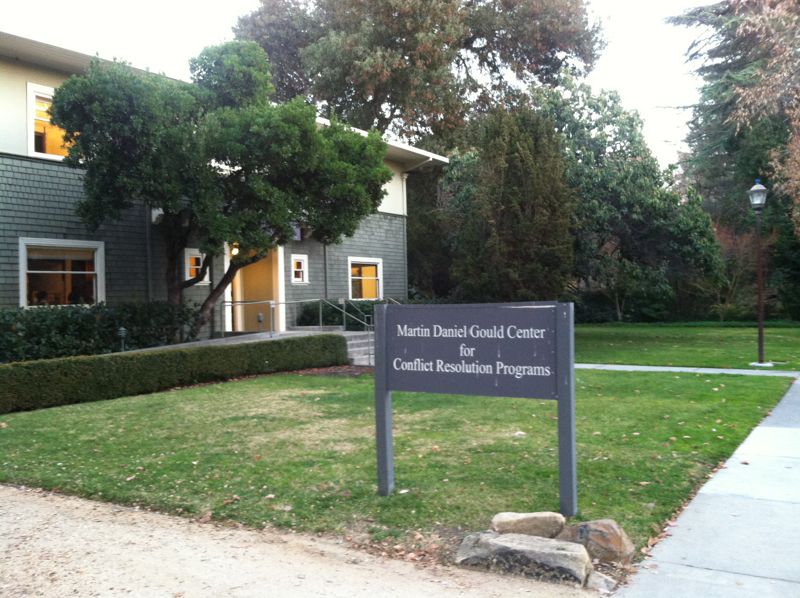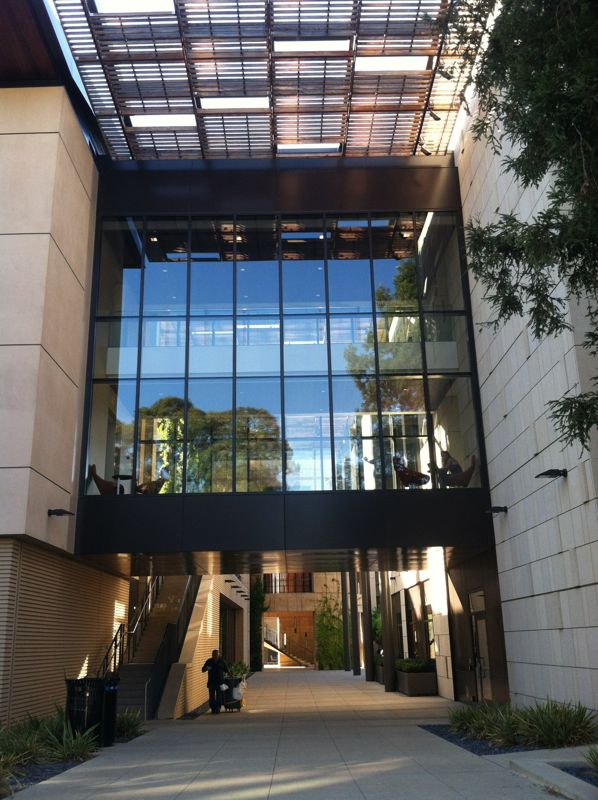Happy to Learn Something New!
We encourage each other to be lifelong learners at Balsamiq, and I decided to take a class. Opportunities for online education are abundant, but don't overlook the benefits of an in-person course. Check out your local universities' continuing education.
I enrolled in courses about Emotional Intelligence at Stanford without sweating any admissions requirements, paid the bargain price (less than $300 per course) and studied happiness. These courses focused on neuroplasticity and mindfulness-based stress reduction (i.e., meditation) so students can better understand and manage emotions, build positive relationships, and resolve conflict. It sounded like a scientific love-in!
The courses were called Positive Psychology & the Keys to Sustainable Happiness: Enhancing Emotional Intelligence; and Happiness at Work: Using Science-Based Practices to Increase Success and Fulfillment, taught by Dr. Laura Delizonna using the curriculum she created with Ted Anstedt.
So, if you'd like to learn something new, here are some of the key take-aways from my "happy classes."
Neuroplasticity: Train your mind. Change your brain.
The science is in: by thinking differently, you actually change the grey matter in your head. We used to think that people were born with their capacity for smarts and, well, you just had that IQ your entire life, but now we realize that we can continue to increase brain power throughout a lifetime.
Evolution-wise, our brains developed like a Winchester Mystery House, with additions and growth right on top of existing areas. These different areas of our brain (the reptilian complex, the limbic system and the neocortex) handle impulses at different (infinitesimal) speeds. Since our higher-order cognitive functions developed later than our primitive survival emotions, they are situated in different areas of our brain. Emotional centers receive input before thinking centers. By understanding this, we can adjust and train ourselves to respond to this asynchronous neural circuitry. We can learn to control our responses. By focusing on happiness, you can habituate yourself right into a good mood, strengthening the ease with which you can transition into a good mood. It's the opposite of a vicious circle!
Perhaps your mother was right!
After we'd finished learning all about the science, biology and physiology of the brain and emotion, we were given tracking sheets, meditation guides, and other practical support. But, the exercises, while very helpful, really, were surprisingly straightforward and simple. Some of this is kitchen-table wisdom. Suggested activities for achieving sustainable happiness were almost too elementary: If you're upset, talk to a friend. Take a walk. Get some exercise. Change the language you use to describe the situation. Try to argue the conflict from the opposite perspective. The shocking part? It works. Try it next time and let me know if you see a difference in your response.
Identify the habit you want to create, and then do it.
The courses drew on common, successful behavior modification techniques like journaling, self-assessment, and peer counseling. The text includes exercises to cultivate good habits through daily practice. Lectures and reading covered the science and physiology to further help us understand the interdependent relationship of practice and habit. Here are the 3 steps to creating a habit:
- Assess
- Plan
- Practice
See what I mean? Simple, right? Ahem, right.
Common errors that thwart happiness:
- We overestimate a threat. Stemming from the need for protection, our brains are built to react in the Fight or Flight mode before we reason through a situation. This can result in over-reacting. Slow down.
- We underestimate our resources. Sometimes, we respond to the initial overestimation of threat and jump to the conclusion that a problem is bigger than we can ever manage. This is often just not true. Relax and take stock of things.
- We overlook opportunities. By jumping to conclusions, we narrow our focus and lose sight of options. Pause and reflect.
Be present somewhere new!
Just walking across a beautiful college campus is inspirational. I felt smarter just rubbing shoulders with the folks in line for coffee! The architecture, beauty and long history was uplifting, and I felt lucky to be there. I arrived early every week to walk around, read under a tree, and consider the coursework. One evening, I caught the choir rehearsing for a concert inside the Memorial Chapel, so I just ducked in and grabbed a seat. What a treat!
Here are some snaps from my walk around campus one evening.







Surely you've also got some great resources where you are. Check around in your area. Post a comment if you've taken any great courses, and what your experience was like. We'd all love to hear about it!


